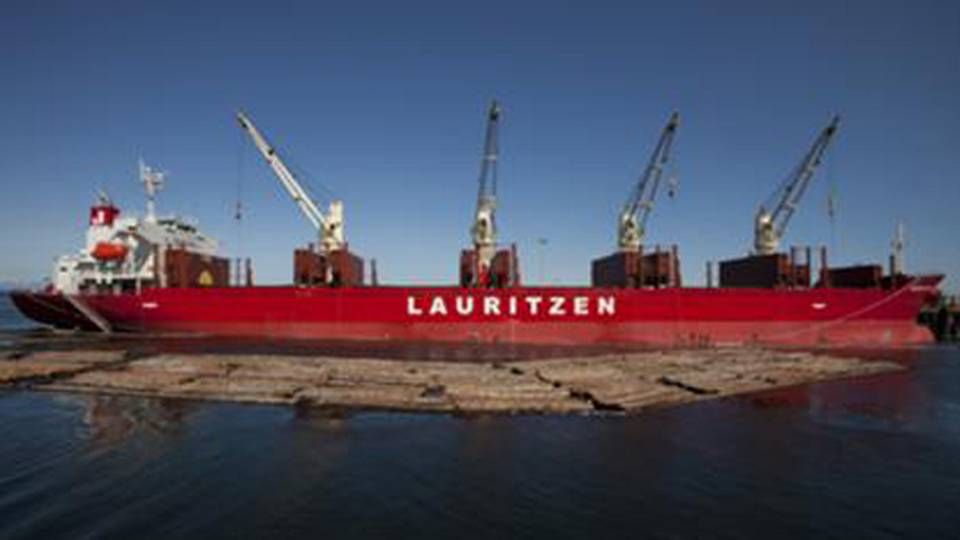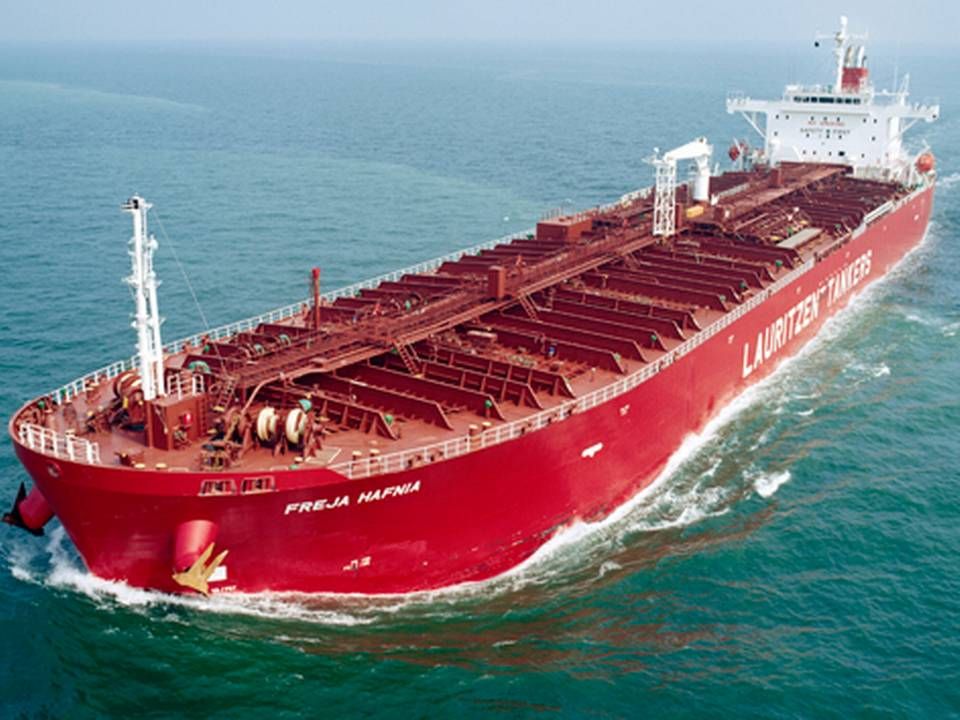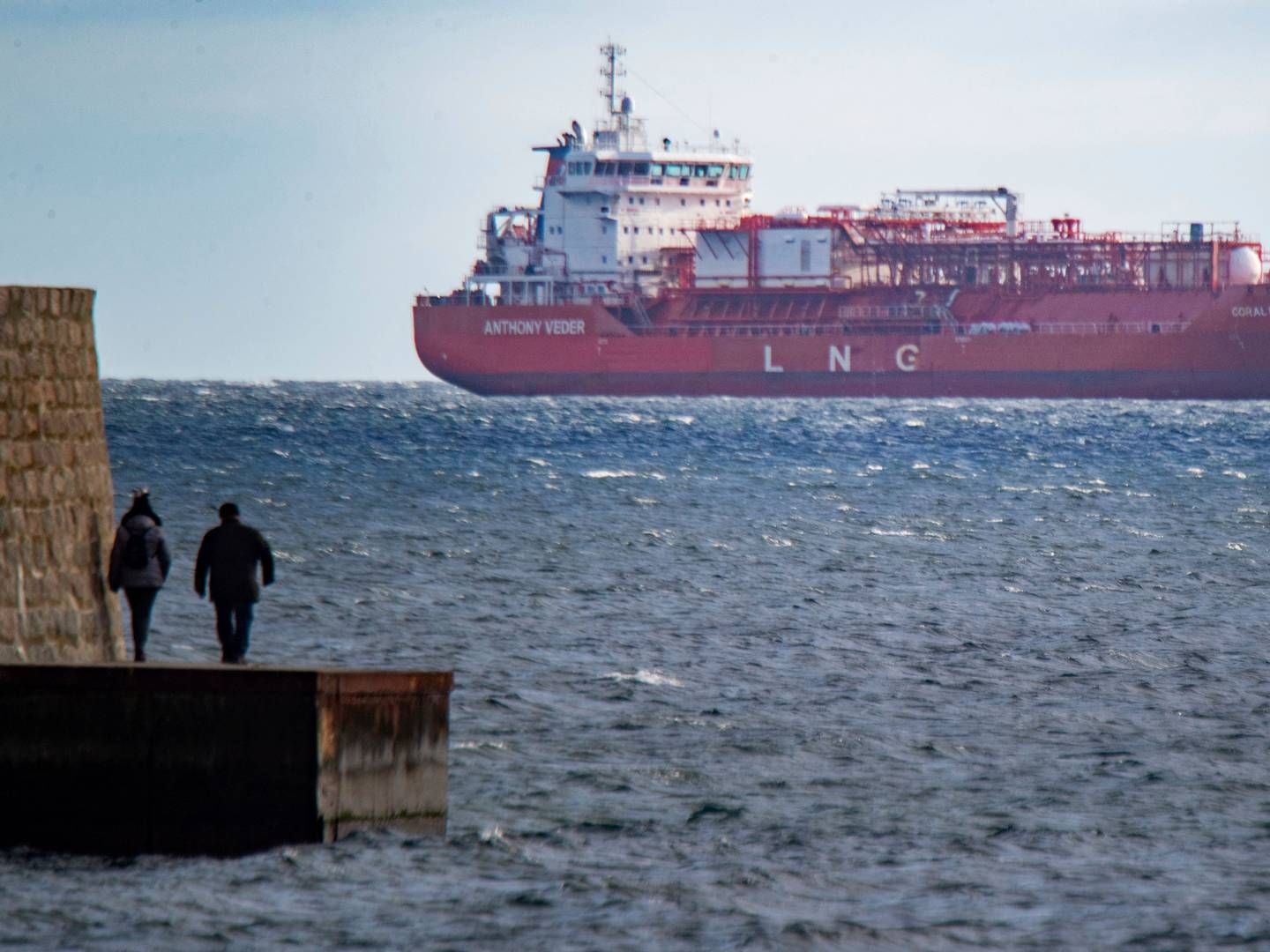Cultural change will boost Lauritzen Bulkers

The crisis in the dry bulk industry has hit J. Lauritzen hard, as the carrier in mid-August performed performed fleet impairments for USD 207 million and lowered its expectations for 2013 to a deficit of USD 310-340 million. And there is of course no way to ignore this, says Lauritzen Bulkers president Peter Borup in an interview with ShippingWatch. He took charge of the segment in February after spending 11 years in Singapore as head of shipping company Norden's activities in Asia.
"I'd actually like to use more of the tools that are available. This means not only covering positions, but taking positions as well. Right now it looks like the market is improving, which means we have to take ships. If we think the market is about to go down again, we have to take cargo. We have to become more disciplined at this," he says, stressing that a high number of employees are already doing this, but that the number can become even higher.
As a result, Lauritzen Bulkers will spend this fall focusing on becoming even better at using the tools that Peter Borup feels are immediately at hand. These include bending the small variables in customer negotiations and not least coming to terms with the fact that the market is still difficult to navigate in. Peter Borup explains that several of the carrier's customers during good years have grown accustomed to asking for 50 to a 100 percent more - and have gotten what they asked for.
Lauritzen: Focus on Handysize in the years to come
"So we have to dig out some of the old virtues here, as the freight rate is low. There are more ships than cargo, so we're the ones who are in a poor situation to negotiate," he says, adding:
"But in stead of spending a whole afternoon fighting for 25 cents, we ought to give those 25 cents to the customer right away and instead secure a degree of flexibility regarding the size of the ship, or the ship's idle time in ports. There are a long list of clauses and conditions that don't really cost a lot to achieve, though they're wort much more than 25 cents."
A change of culture
And it is tools like these, such as idling or the ability to arrive earlier if a ship is loaded faster than expected, that need to be used more in the organization. In order to secure a higher degree of flexibility in the contracts, which can help create value on the bottom line, explains Peter Borup:
"It's a cultural change. Something that's easy to do and which we talk about a lot. We could run around and be concerned about a lot of things that we can't control, such as the growth in China. But the things that we can do something about, we just have do act on those things. There's never going to be a downside to visiting our customers, asking for a little flexibility in terms of cargo sizes or arrival times. Or all kinds of other variables," he says, adding:
"This is a freely available asset that's dangling right in front of us. All we have to do is ask."
Improvement on the way
In spite of the need to focus on the various tools available, Peter Borup stresses that the organization is where it needs to be. He believes that Lauritzen Bulkers is in a strong position, even in light of the crisis in dry bulk.
"Of course, we're buying expensive ships like everyone else. But I feel that we're getting closer to having the right pricing in our books," he says, referring to the impairment earlier this year.
This is really a sign that the carrier is writing things down according to the current market, he says, and this is a positive development as it forms the basis for improvements going forward.
"No one's going to make money in dry bulk this year, perhaps with a few exceptions, and those exceptions are not Danish. Everyone is losing money, including us, but I sense that the market is improving."
He expects that Lauritzen Bulkers will start making money again within the next year. The sooner the better, of course. Beyond this, the point is to keep up with the market and work to be better than the strongest competitors in the two primary segments, Handysize and Supramax, which include Hong Kong's largest stock listed dry bulk carrier Pacific Basin and Danish Norden.
"We've seen that some of our competitors are doing very well. And we can see that we're placed very close to the two or three biggest competitors," he says.
"When we'll start making money again depends entirely on the market. But I don't think the market is going to get much worse than this. I think we've seen the bottom of dry bulk."
Related articles
Junk Bond status could hurt J. Lauritzen
For subscribers
J. Lauritzen: Top priority is keeping the market's trust
For subscribers





















